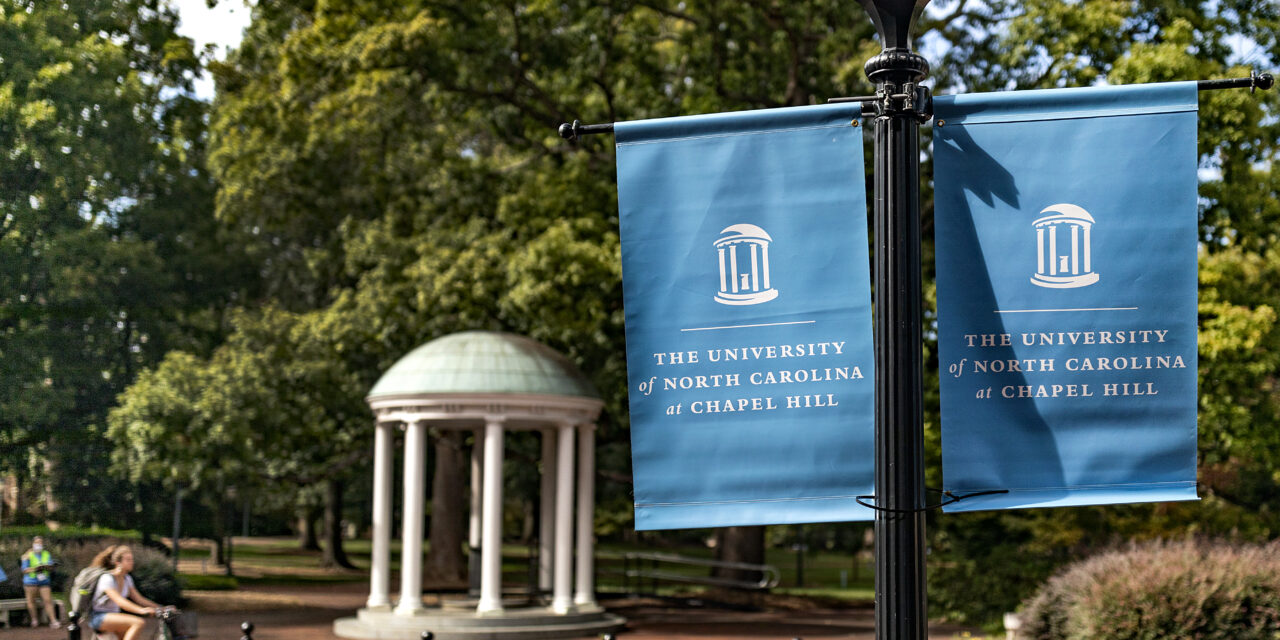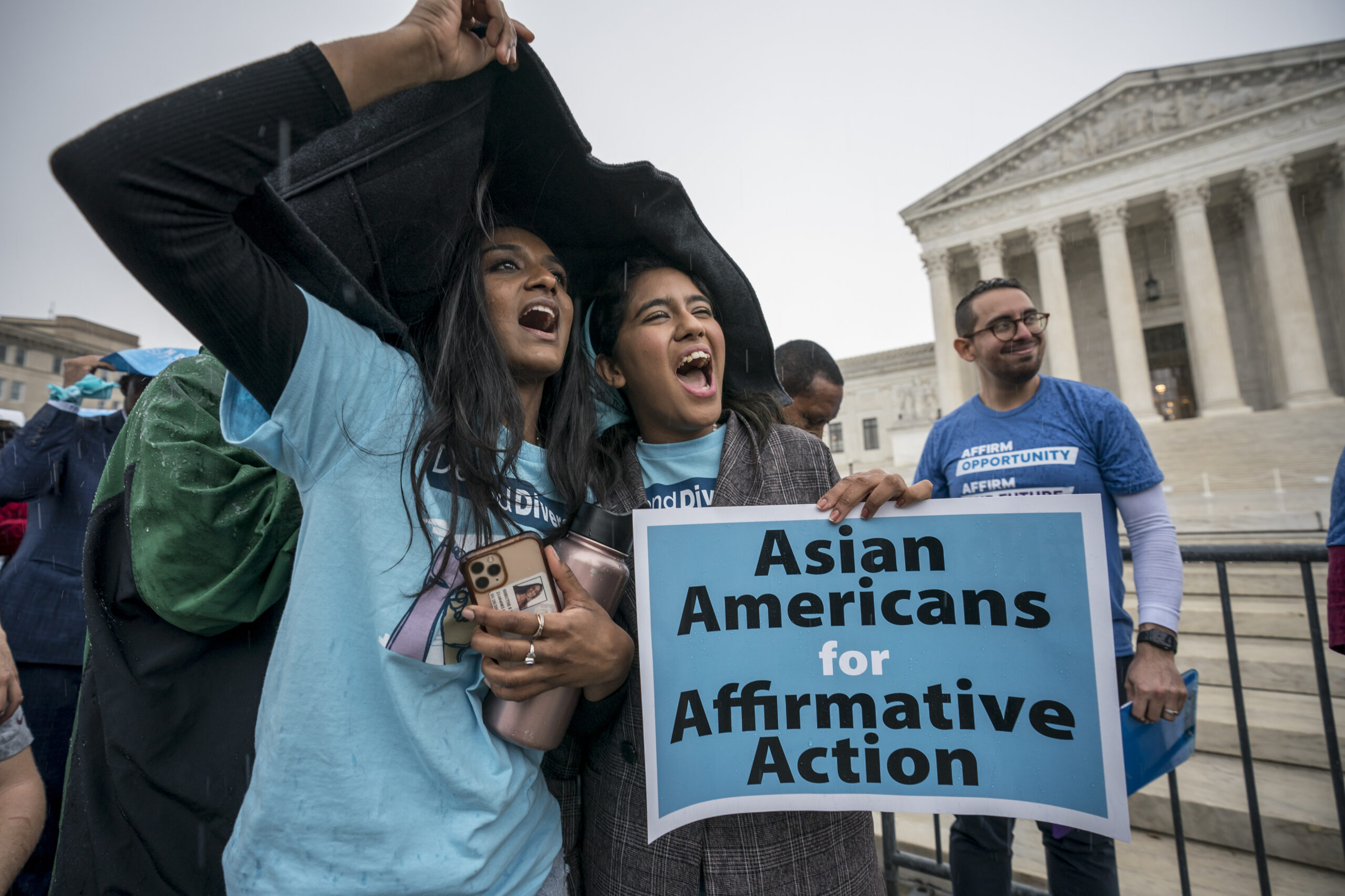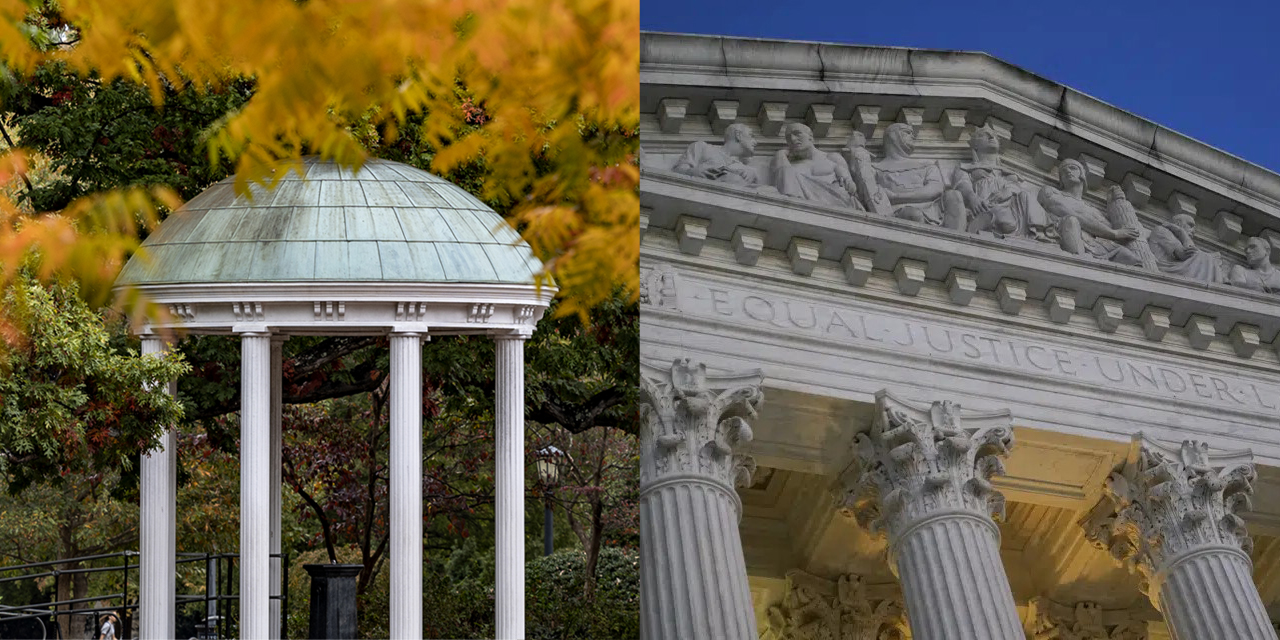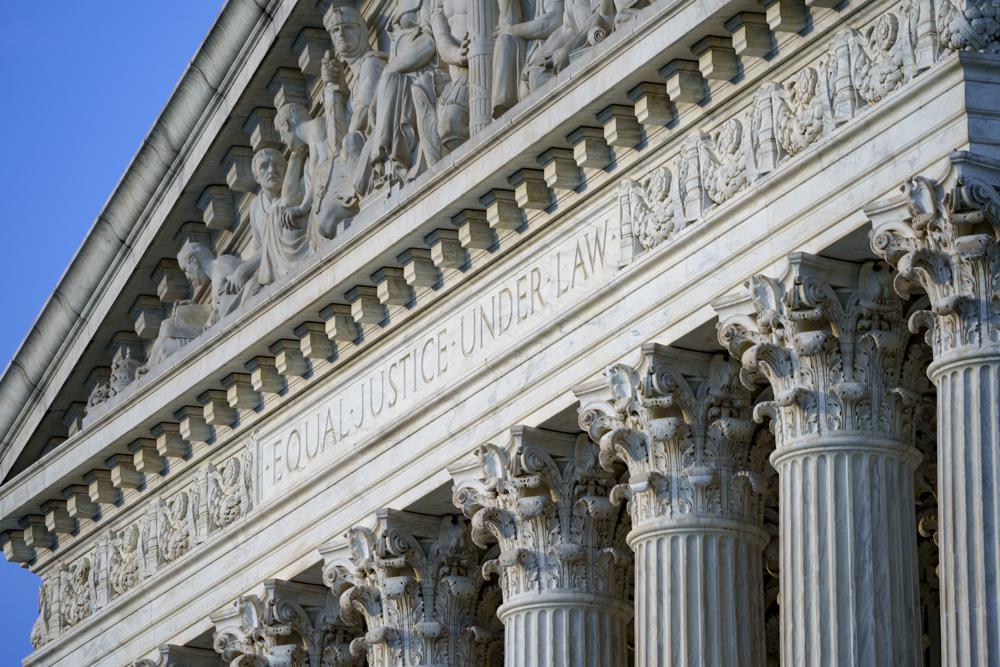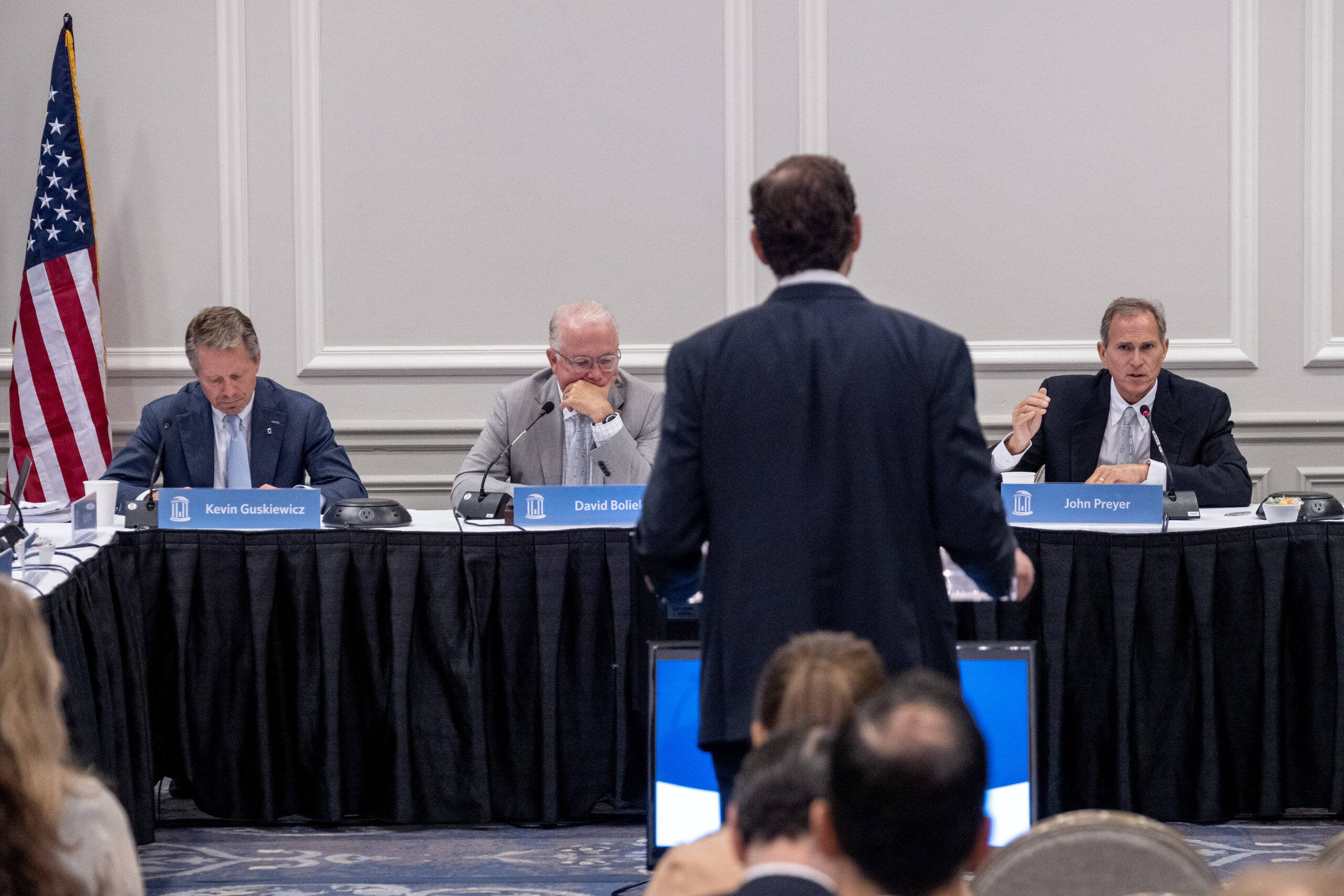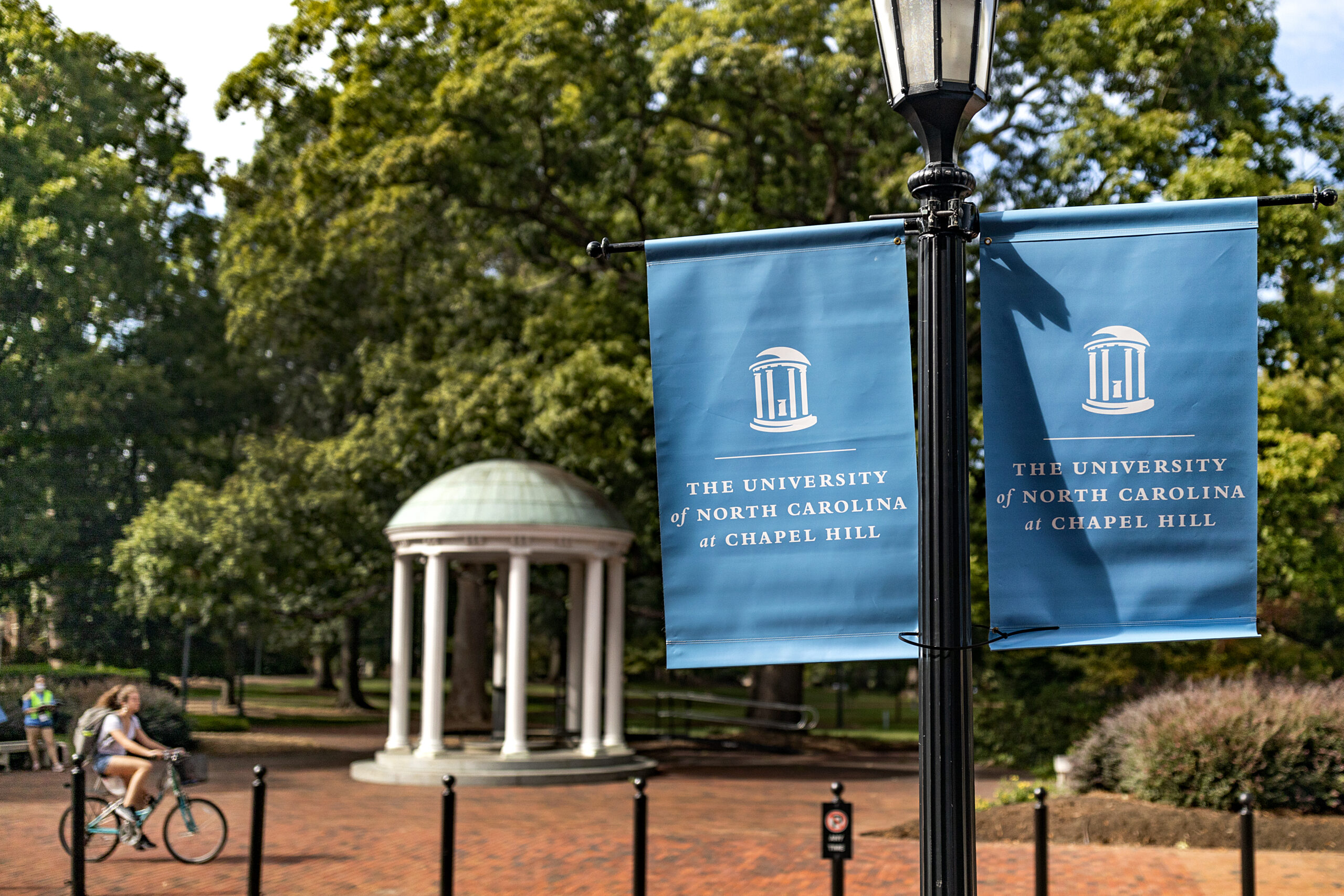The U.S. Supreme Court ruling last week in Students for Fair Admissions v. UNC shook the world of higher education as it signaled changes for race-based admission policies.
But what was the reaction like for UNC students and faculty who advocated for those practices and race-conscious methods?
Reyna Patel is on the leadership team for the Affirmative Action Coalition at UNC. The group of students – which is predominantly Asian American and other non-white cultures – advocated for months to promote the benefits of racial considerations in admissions.
But Patel said the court’s 6-3 conservative majority indicated it was not likely to be in their favor before its ruling was shared last Thursday.
“I think that we could’ve seen this decision coming from a mile away,” she said. “Our coalition was certainly expecting something of the sort. But to hear it on the day of was still very disappointing and disheartening, and it certainly makes me question the future of admission and diversity across college campuses in America.”
Following the justices’ opinions, the Affirmative Action Coalition shared a statement with similar sentiments. Co-signed by several other student groups, Patel and her peers wrote that they “grieve the loss of such an important precedent.” While she acknowledged the outcome and its vast ramifications, she added that she felt the coalition’s efforts – from organizing on campus to demonstrating in Washington D.C. – were effective in spreading its message.
“I think that having student voices chime in and say, ‘affirmative action is important to us,’ is something that would have potentially been able to move the marker,” said Patel. “And I’m still so proud of the work that myself, my team and other student voices [have done], to at least say what we wanted.”
Additionally, pockets of the UNC faculty also spoke out criticizing the decision. The Carolina Black Caucus shared a statement on social media saying it was “deeply disheartened” by the Supreme Court’s ruling and that it will continue to actively foster a diverse and inclusive campus in Chapel Hill.
Deborah Stroman, a former chair of the caucus and currently an adjunct professor at UNC, said she believes the university’s argument of including race as a component – but not the sole one – in student admission was strong. While the plaintiffs in the case against UNC were Asian American applicants, she cited a study done by Georgetown University that concluded such cultures also benefited from the holistic admission approaches and would see only marginal increases in admissions if solely based on test scores. She said that evidence weakens the arguments presented by Students for Fair Admissions.
Stroman, who is also an equity coordinator for the Gillings School of Public Health, said her background studying history leads her to conclude systemic racism plays a role in the opportunities provided to non-white races. She likened oppression tactics like slavery and segregation as a handicap to Black Americans – adding that having their younger generation at the same “starting point” as white Americans with no barriers is imbalanced.
In the wake of the ruling in Students for Fair Admissions v. UNC, supporters of improving diversity on campus have filed new litigation against Harvard University to challenge the constitutionality of legacy admissions. Stroman said she agrees that such practices are also an example of systemic racism, based on Black and brown people not being allowed to attend those schools for decades.
“Who can be a legacy [admission] of Princeton,” she asked. “Who can be a legacy [admission] of Yale? We can only go back maybe one generation, maybe two [for Black Americans] – not many. Because it was only in the late 1940s and 50s when the big, southern, flagship institutions started admitting Blacks. And then we have to be mindful: it wasn’t like they opened up the floodgates and said, ‘Okay, we’re going to take in a class of 50 Black students.’ It was like two or three.”
While colleges who have to adjust their admissions policies may not see a difference on campus as soon as this fall, some students may feel different based on the ruling. Stroman said she believes it’s important for non-white students to take care of their mental health and know they belong at their respective universities — not that they got there solely because of their race.
Stroman, who is also a former college athlete, said she has concerns about the experience for recruited high-level athletes becoming even more alienating than it already is. If schools see their campus populations become less diverse, how will it affect those non-white students who are admitted and attend? The adjunct professor pointed to the population makeup of schools in California – where the state itself had created rules against considering racial identity in admissions – which are now seeing the effects.
“At UCLA,” Stroman cited, “approximately 70 percent of Black men on campus are scholarship athletes. So, what’s going to happen to the culture at these flagship institutions? How are these Black athletes going to be able to identify, have a healthy self-esteem, take African American studies – or, for that matter, any other ethnic group.
“I think this is going to affect the landscape across all systems,” she continued, “because of a small group of people who are very organized with a lot of money. So, we’ve got to step up. This is a call to action to everybody: white, brown, and black people, who believe in this democratic experiment and what we’re driving toward. Because there are people who are adamant in that they don’t want [diversity] to happen.”
Patel shared similar thoughts, saying the Affirmative Action Coalition will be continuing its mission on UNC’s campus to gather student support of diversity measures. Already, the organization has put together a form to send university leaders their thoughts on how overturning affirmative action will affect them and why diversity should continue to be prioritized.
“We see this decision as the beginning of a long fight,” said Patel. “I’m sure that there’s going to be plenty of other attacks on diversity, equity and inclusion on college campuses. We have a lot planned for the next year and following months to be able to retain on-campus diversity in many other aspects, if not through college admissions.”
When asked for a statement from the admissions department on the Supreme Court’s ruling against race-based considerations, the UNC media relations team referred Chapelboro to Chancellor Kevin Guskiewicz’s statement made on Thursday and said no further comments are going to be made at this time.
Editor’s Note: In addition to her role with the university, Deborah Stroman is a weekend show host with 97.9 The Hill and has a regular segment with Brighton McConnell, the author of this article.
Photos via Johnny Andrews/UNC-Chapel Hill.
Chapelboro.com does not charge subscription fees, and you can directly support our efforts in local journalism here. Want more of what you see on Chapelboro? Let us bring free local news and community information to you by signing up for our biweekly newsletter.

